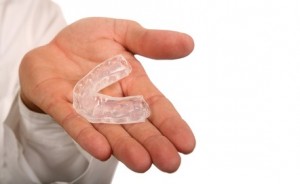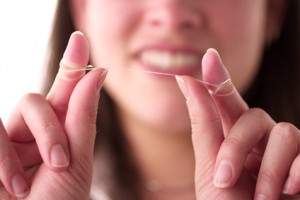With studies coming out everyday linking how important a healthy lifestyle is its no surprise to see  changes in the diet choices of the general population. Besides overall health nutrition and dental health is also an important subject that many are not aware of. Vegetarians; whether lacto-vegetarians, ova-vegetarians, semi-vegetarians or vegans; as well as people dieting or radically changing their diet, should be more aware of the food they are eating to be sure they are including foods rich in the vitamins and minerals needed to keep your body healthy and your smile beautiful.
Being a dentist we find that we see nutritional deficiencies apparent in the tissues of the mouth before you may notice them elsewhere. Some of the more important nutrients that may be neglected when changing your diet that are important for your oral and general health are:
changes in the diet choices of the general population. Besides overall health nutrition and dental health is also an important subject that many are not aware of. Vegetarians; whether lacto-vegetarians, ova-vegetarians, semi-vegetarians or vegans; as well as people dieting or radically changing their diet, should be more aware of the food they are eating to be sure they are including foods rich in the vitamins and minerals needed to keep your body healthy and your smile beautiful.
Being a dentist we find that we see nutritional deficiencies apparent in the tissues of the mouth before you may notice them elsewhere. Some of the more important nutrients that may be neglected when changing your diet that are important for your oral and general health are:
- Calcium: This nutrient is very important for bone health, as well as helping to maintain healthy gums and reduce your risk for cavities. Calcium is typically found in leafy green vegetables, dairy products, as well as in legumes and some shellfish.
- Vitamin B12 and Vitamin B2: A deficiency in these two vitamins can cause mouth sores. Vitamin B2 can be found in milk and cheese, leafy green vegetables, beans, bananas, and almonds. Vitamin B12 can be found in some shellfish, cheese, and eggs.
- Niacin or Vitamin B3: A deficiency in this vitamin can cause bad breath and sores in the mouth. Niacin can be found in eggs, tuna, salmon and halibut, avocados, dates, leaf vegetables and various nuts and legumes
- Vitamin D: this nutrient helps with the absorption of calcium, when lacking vitamin D some may suffer from something called burning mouth syndrome which can cause and uncomfortable sensation of the tongue and mouth.
- Iron: a decrease in Iron can present itself as a sore inflamed tongue and may cause sores inside your mouth to form as well. Iron-rich foods are eggs, lentils and other dried beans, shrimp, cod and tuna, spinach, sweet potatoes, broccoli and peas. Accordingly foods that boost iron absorption the most are meat, a good iron supplement and foods high in vitamin C.
- Vitamin C: this vitamin is important for healing as well as general health a deficiency can present itself as bleeding gums and loose teeth. You can find vitamin C in Citrus fruits, sweet potatoes and red peppers.
- Some other important vitamins for oral health are Vitamins A, E and K.


 Picture this: You’re mere moments away from your regular dental visit, anticipating the question, “Have you been brushing and flossing regularly?” In an attempt to clean whatever might be lurking between your teeth before your hygienist or dentist catches you red-handed, you franticly brush and floss hours before your appointment. Once that dreaded questions comes, you give your answer, “Yes of course I do! All the time! I love flossing!,” but get the distinct feeling that they just don’t believe you.
So, how do we dentists know if you’ve been flossing regularly?
Being dentists, we can’t stress enough the importance of regular flossing in conjunction with brushing. Flossing is important to your gum and tooth health and when you don’t floss regularly, there are very apparent consequences.
The most obvious is inflammation between the teeth. When you don’t floss regularly, plaque, bacteria, and debris sit between the teeth causing inflammation. As a result, your gums start to look pink, puffy and inflammed and bleed easily.
The second give away is cavities forming between the teeth. Brushing your teeth, no matter how good and efficient you are at it, will not clean where the teeth meet. The only way to clean in that crucial spot is to floss. If you have any cavities or the beginning stages of cavities, it indicates that flossing is a weak point in your home care regimen.
Lastly, the biggest and most obvious sign that a patient is not flossing regularly is cuts or abrasions on the gums, indicating that the patient may have just flossed or isn’t doing it correctly or efficiently. If you aren’t careful and don’t know you’re way around your teeth and mouth, it will show.
The moral of the story is simple, make flossing a part of your daily regimen! The benefits to your oral health are tremendous.]]>
Picture this: You’re mere moments away from your regular dental visit, anticipating the question, “Have you been brushing and flossing regularly?” In an attempt to clean whatever might be lurking between your teeth before your hygienist or dentist catches you red-handed, you franticly brush and floss hours before your appointment. Once that dreaded questions comes, you give your answer, “Yes of course I do! All the time! I love flossing!,” but get the distinct feeling that they just don’t believe you.
So, how do we dentists know if you’ve been flossing regularly?
Being dentists, we can’t stress enough the importance of regular flossing in conjunction with brushing. Flossing is important to your gum and tooth health and when you don’t floss regularly, there are very apparent consequences.
The most obvious is inflammation between the teeth. When you don’t floss regularly, plaque, bacteria, and debris sit between the teeth causing inflammation. As a result, your gums start to look pink, puffy and inflammed and bleed easily.
The second give away is cavities forming between the teeth. Brushing your teeth, no matter how good and efficient you are at it, will not clean where the teeth meet. The only way to clean in that crucial spot is to floss. If you have any cavities or the beginning stages of cavities, it indicates that flossing is a weak point in your home care regimen.
Lastly, the biggest and most obvious sign that a patient is not flossing regularly is cuts or abrasions on the gums, indicating that the patient may have just flossed or isn’t doing it correctly or efficiently. If you aren’t careful and don’t know you’re way around your teeth and mouth, it will show.
The moral of the story is simple, make flossing a part of your daily regimen! The benefits to your oral health are tremendous.]]>  In today’s health conscious world, there is an increasing focus on maintaining a healthy mind as well as body. Studies now show just how complex our bodies are and how important daily maintenance is.
One topic that I find very interesting and important is the link between periodontal disease and heart disease. Cardiovascular disease affects more than 80 million people in the United States alone. It can present itself in the form of high blood pressure, heart attacks, angina pectoris, strokes or even heart failure. Periodontal disease, in the dental world is also incredibly prevalent.
Periodontal disease is the chronic inflammation and infection of the gums and surrounding tissues. Periodontal or gum disease can involve gingivitis (the inflammation of the gum tissue) or periodontitis (the loss or recession of bone aroud the teeth).
So what’s the connection?
Recent studies have found that the bacteria and inflammatory proteins that are present in gum disease are associated with an increase of blood vessel wall thickening, which is often found in cardiovascular disease.
The theory is that the bacteria and inflammatory proteins found in the mouths of people with periodontal disease make their way to the blood stream where they begin to affect the cardiovascular system.
How does this effect you?
Having good oral health is something we should all strive for, however, if you are at risk for, or have a family history of cardiovascular disease then you should be even more diligent with your oral hygiene. That means flossing and brushing regularly and seeing your dentist at least every 6 months. If you have periodontal disease be sure to tell your physician as well.]]>
In today’s health conscious world, there is an increasing focus on maintaining a healthy mind as well as body. Studies now show just how complex our bodies are and how important daily maintenance is.
One topic that I find very interesting and important is the link between periodontal disease and heart disease. Cardiovascular disease affects more than 80 million people in the United States alone. It can present itself in the form of high blood pressure, heart attacks, angina pectoris, strokes or even heart failure. Periodontal disease, in the dental world is also incredibly prevalent.
Periodontal disease is the chronic inflammation and infection of the gums and surrounding tissues. Periodontal or gum disease can involve gingivitis (the inflammation of the gum tissue) or periodontitis (the loss or recession of bone aroud the teeth).
So what’s the connection?
Recent studies have found that the bacteria and inflammatory proteins that are present in gum disease are associated with an increase of blood vessel wall thickening, which is often found in cardiovascular disease.
The theory is that the bacteria and inflammatory proteins found in the mouths of people with periodontal disease make their way to the blood stream where they begin to affect the cardiovascular system.
How does this effect you?
Having good oral health is something we should all strive for, however, if you are at risk for, or have a family history of cardiovascular disease then you should be even more diligent with your oral hygiene. That means flossing and brushing regularly and seeing your dentist at least every 6 months. If you have periodontal disease be sure to tell your physician as well.]]>